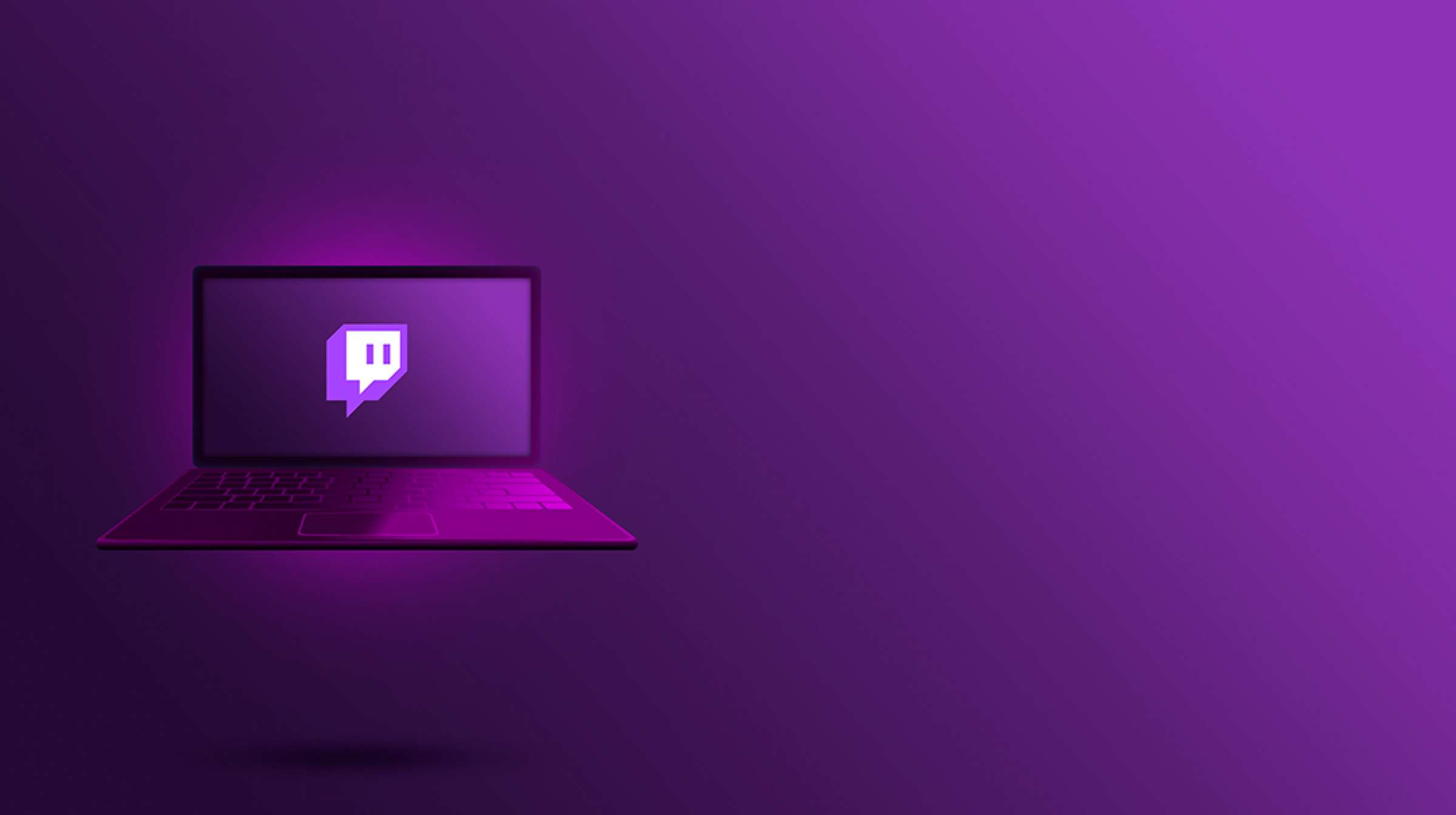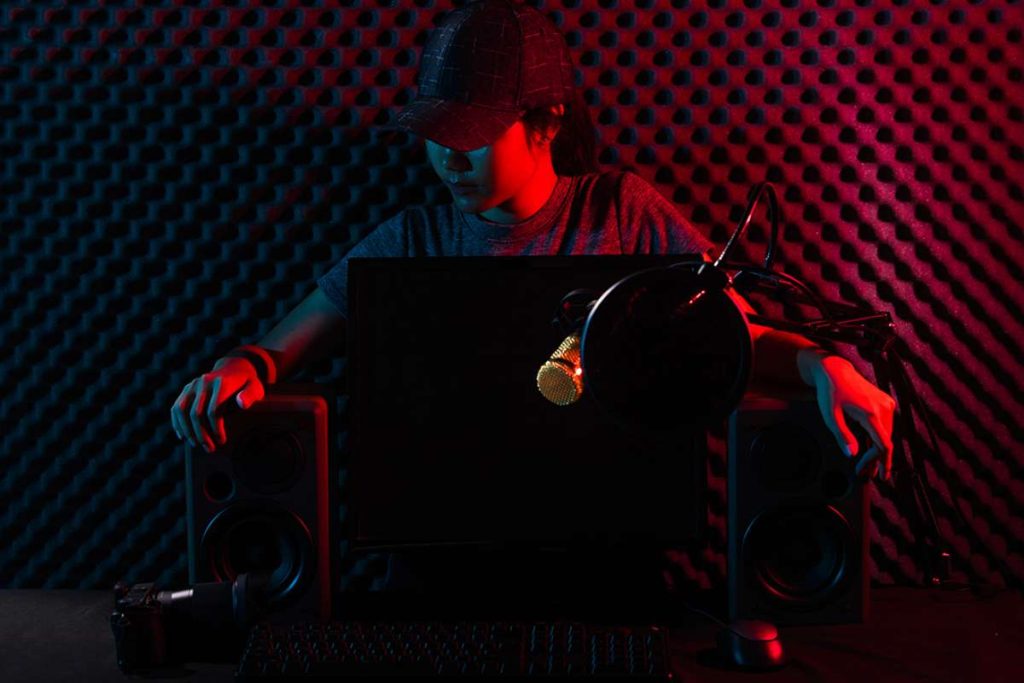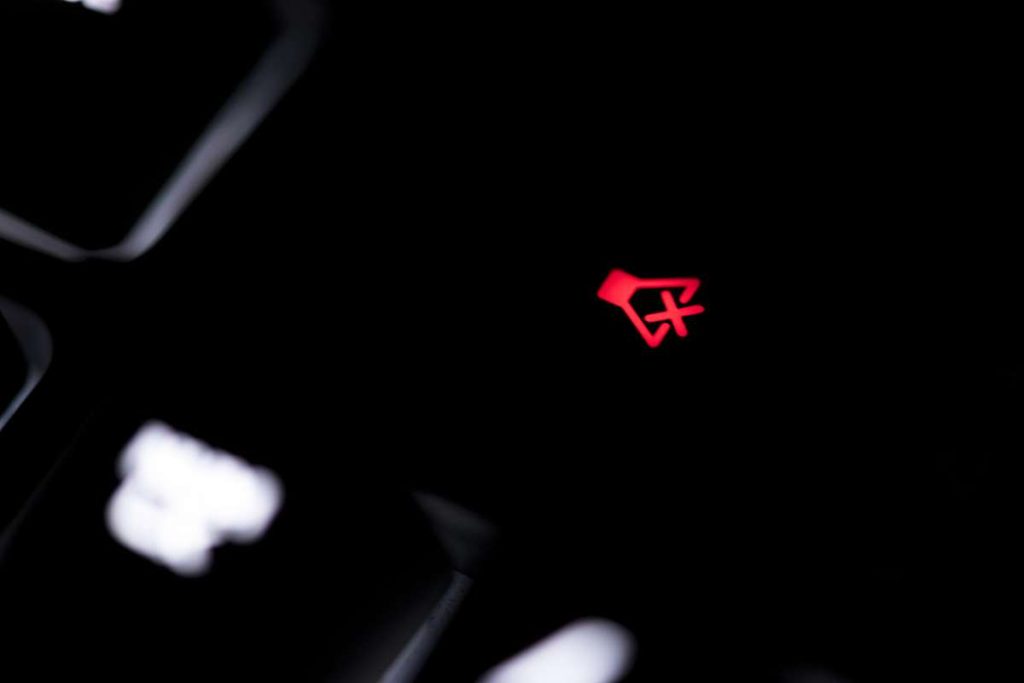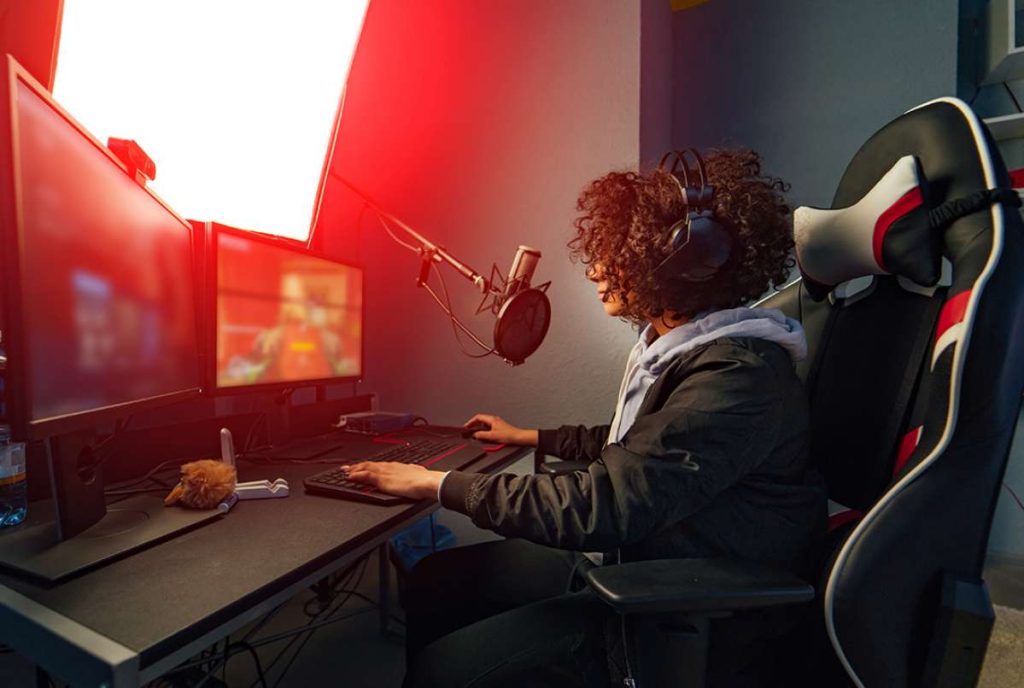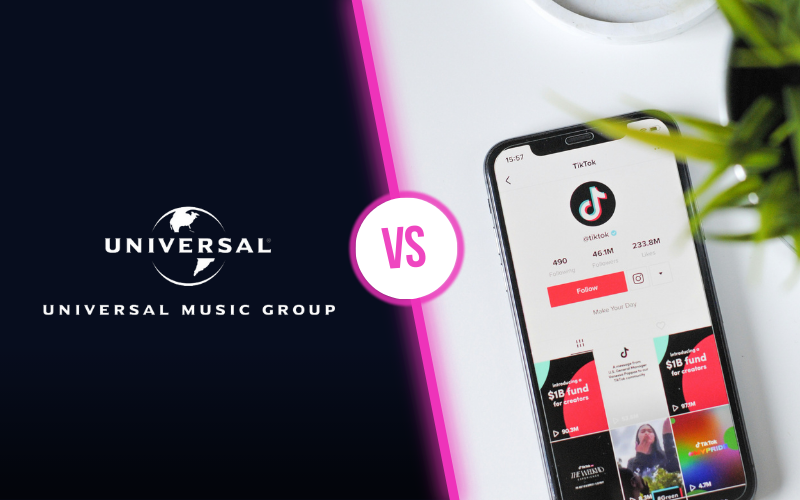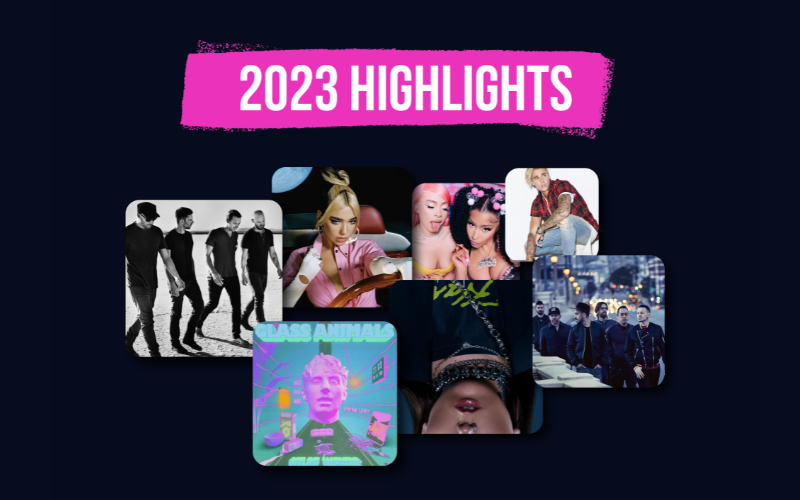Twitch is the world’s most popular streaming platform. Thousands of people tune in daily to watch their favorite streamers and there’s a lot of competition for viewers. Making your content stand out, whether you’re a musician, gamer, or streaming your day-to-day life, can be difficult. Using the right music on Twitch is just one of the key ways you can elevate your content, but there are a number of things you need to know before you start adding songs to your streams.
As experts in music licensing for Twitch and other social media platforms, Lickd is here to help you navigate the tricky waters of copyright and avoid having your content taken down.
What are the rules?
There are a number of basic Twitch music rules that you need to follow. These rules affect all Twitch streamers, whether you have a million subscribers or just a few hundred, so you’ll want to make sure you’re familiar with them before you start creating content.
The rules generally follow standard copyright laws and Twitch expects the people using the platform to respect the content made by others. This means that the main rule you need to follow is that creators only share content for which they have the necessary rights.
What does this mean though? It means that if you go live with a stream, or upload a video on demand (VOD) that contains copyrighted material you haven’t obtained permission to use, your content can be taken down.
Copyright infringement is serious and simply owning an album or subscribing to a music streaming service doesn’t give you the right to use it in your videos. This may feel limiting, especially if you’ve found the perfect track for your latest Twitch stream, but in reality, there’s still a lot you can do.
What music are you allowed to stream on Twitch?
So what music can you actually use on Twitch? It may feel restrictive when you can only use music you have permission to use, but there are still simple ways you can find music for your streams without worrying about takedowns.
Music owned by you
What we’re talking about here isn’t an album you bought on iTunes or a vinyl from your local record store, it’s music that you have written, created, recorded, or performed live that you own all the rights to.
There are still potential limitations. For instance, if you are signed to a record label, they may have something in their terms about usage for the music you created, so make sure to check with them if that’s the case.
Music licensed by you
The rights to most songs are owned by a third party. These copyright holders, often major record labels, will own either the whole or part of the music. To use music that’s owned by someone else, you’ll need to obtain a license.
This is where Lickd comes in. You can license music for Twitch by simply browsing our extensive 150,000+ track library of Billboard 100 artists, adding your favorite tracks to your basket, and buying the licenses. Once you’ve obtained your music licenses you’ll be able to use the songs in your streams.
Music streamed from Soundtrack by Twitch
Once Twitch started cracking down on copyright infringement, they introduced their own audio library to help users add music without worrying about copyright. This library, known as Soundtrack by Twitch, gives you access to a number of artists and genres to use as background music or sound effects.
As with almost any stock music library, there are limitations. The artists and labels included are ones that Twitch has negotiated individually, and many don’t see the benefit of adding their music to it. With this in mind, you won’t get access to the same variety of popular music as a platform like Lickd.
Soundtrack by Twitch is also specifically designed to use as background music for live Twitch broadcasts, and the music you use in your streams from Soundtrack will not carry over to VODs or Clips. Music you license with Lickd can be used both live and on-demand.
What music are you not allowed to stream on Twitch?
There are a number of audio and music formats that you can’t actually use in a stream on Twitch, no matter the circumstances.
Radio-style music broadcast
This refers to using your streams or VOD content like they are a radio station. As you are unlikely to have the license to that many pieces of musical content, these are prohibited on Twitch.
DJ set
Using your stream to perform a DJ set is a slightly sticky one. Technically, you can mix or play pre-recorded music tracks, as long as you own them outright or have the license for every track. You need to be careful with this though as simply sampling another track into a mix could land you in hot water.
Karaoke or lip-syncing performance
Another one with a caveat. You can’t lip-sync, sing or pretend to sing along to music you don’t own the license for. However, if you are performing karaoke as part of a game, like SingStar, you can do so.
Cover songs
If you are performing a cover song in a live stream, you must ensure that all parts of the performance are your own original work. This means you are singing and performing all parts of the song, without sampling or incorporating instrumental tracks or music recordings from the original musician’s piece.
What happens if you play copyrighted music on Twitch?
Twitch uses the Digital Millennium Copyright Act (DMCA) to police the use of copyrighted materials on its platform. This is a collection of US laws that dictate how copyrighted content can be used. They partner with Audible Magic to scan all of their streams, VODs, and Clips automatically for copyrighted content, but they also allow copyright owners to contact them when they find their material has been used without permission.
In either case, if you play copyrighted music on Twitch without the right permissions, you’ll receive a DMCA takedown notification. This will mean that your content has been taken down. If you repeatedly breach copyright laws and receive multiple DMCA notifications you may even have your account suspended.
However, Twitch recently announced a new process in which participating music rights holders can opt in to report certain uses of their music, which is more flexible and forgiving to creators who inadvertently or incidentally use music in their streams. This doesn’t mean you’re off the hook however! It means that you’ll receive a warning before a penalty, giving you the opportunity to either remove your content, remove the music or obtain a license for the music used.
Twitch said: “This new process does not change how music can be used on Twitch. As we’ve said consistently, it’s never okay to include music in your channel unless you’ve secured the necessary rights or have the authority to do so – doing so violates the rights of music creators and runs counter to Twitch’s mission of supporting all creators. But, we recognize that not all unauthorized uses of music merit the same treatment and it is our hope that we can, as part of the agreements with music rights holders, take a balanced approach that supports creators on Twitch”
How to avoid a DMCA takedown on Twitch?
While we’ve already covered the types of music you can and can’t use, as well as recommended you obtain music licenses for any tracks you do use, there are ways that you, as a content creator, can avoid receiving a DMCA takedown.
Twitch’s own advice on the best ways to avoid a DMCA takedown on the platform is as follows:
Don’t play recorded music on your stream – Completely abstaining from using any recorded music is by far the simplest way to avoid a DMCA notification. Twitch’s own guidance does point out that you don’t have to do this if you own the rights or have the required permissions though. Music is central to the enjoyment of content, so though it’s a simple way to avoid DMCA issues, eliminating music all together could mean your content doesn’t perform as well.
Mute in-game music – Many games have recorded music in them, and if you’re streaming them live it may get picked up. While this is rare, you may want to check the End User License Agreement for the game you’re playing. Some games may give you the option to turn off the music while you’re streaming.
Check your old content on VODs and Clips – if you uploaded content before Twitch brought in its copyright rules you’ll need to check whether you have any videos that could see you get a notification. If you do, you’ll likely have to delete them, or you’ll need to try and seek permission for the songs included.
Get familiar with music licensing
If you’re well versed in music licensing, you shouldn’t have anything to worry about. Whenever you’re creating content online, whether it’s for a Twitch stream, Twitter, YouTube, or Instagram, you need to be familiar with copyright laws. It’s helpful to have a good understanding of what copyright means in music, what royalty-free actually means, and how to tell if a song is copyrighted in the first place. Lickd has a series of music licensing guides to help you get started.
How to get Twitch-safe music
If you’re a streamer looking to find Twitch-safe music, there are many places to look. At Lickd we can help you learn everything you need to know about licensing music for Twitch. We’ve gone over all of your options, helping you understand royalty-free libraries, Soundtrack by Twitch, and your best option; officially licensing the very best tracks with Lickd.
